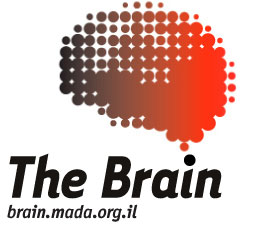|
 The Expert Brain The Expert Brain
The human brain has developed areas of expertise that help us deal with reality as efficiently as possible. But it's in these "expert" areas that the brain can sometimes be easily fooled because they operate according to a set of inflexible prior assumptions.
Identifying faces
We see hundreds of human faces each day, and even though they are all basically similar, we're able to identify particular individuals quickly and easily. That's one of the brain's areas of expertise, and part of it is specially designated for processing faces. Since the brain is accustomed to processing faces in their natural form, changes or distortions in facial features confuse it - and create illusions.
The brain in motion
We live in an environment that is constantly moving and changing. The brain's expertise in processing movement alerts us quickly to approaching danger. Motion illusions demonstrate how movement helps to translate two-dimensional stimuli into three-dimensional perceptions. Sudden movement attracts our attention and causes us to ignore constant stimuli.
Interwoven senses
We absorb information about the world through our senses. Some areas of our brain specialize in combining input arriving from the five senses. The result is an integrated, rich perception of the world around us. When there's a contradiction in the information transmitted by the senses, the brain becomes confused and is unable to combine all the input it receives.
|













 The Expert Brain
The Expert Brain